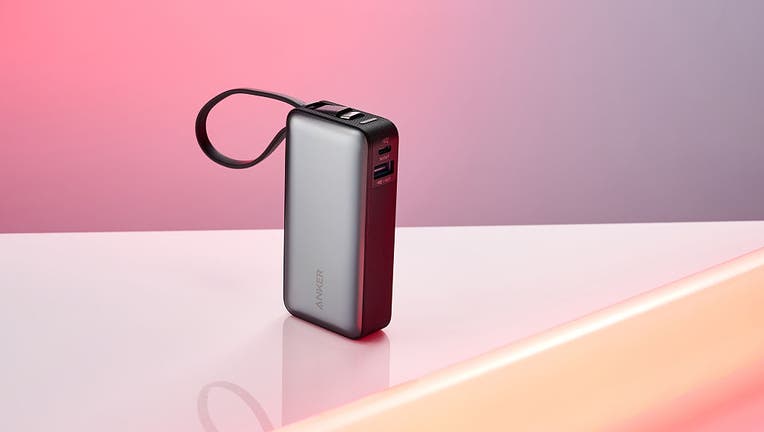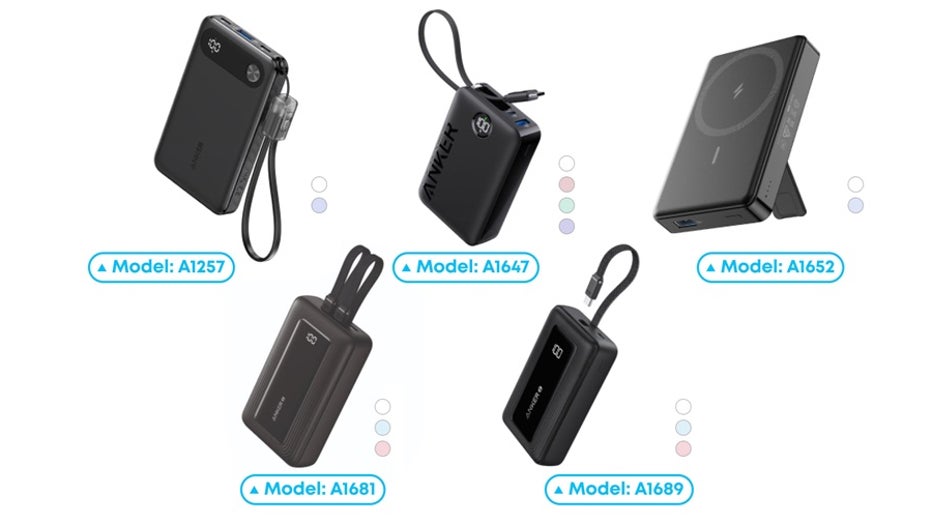
Anker portable power bank. Nearly 500,000 units have been recalled due to fire and burn hazards, according to federal safety officials. (Photo by Future Publishing via Getty Images)
Anker is recalling nearly half a million portable power banks after dozens of reports of overheating and fire, according to the U.S. Consumer Product Safety Commission.
The recall covers about 481,000 units of five different models manufactured by Anker Innovations in China.
Why the power banks are being recalled
The backstory:
Officials say the lithium-ion batteries inside the devices can overheat, creating fire and burn hazards. The CPSC said Anker has received 33 reports of overheating incidents, including cases where the power banks exploded.
At least four users reported minor burn injuries, and one report of significant property damage was linked to the products.
Which models are affected
The recall includes Anker Power Bank models A1647, A1652, A1257, A1681, and A1689.

Anker power bank models A1257, A1647, A1652, A1681 and A1689 have been recalled after reports of overheating, fires and burn injuries, according to the U.S. Consumer Product Safety Commission. (CPSC)
The portable chargers, which were sold for $30 to $50, have “Anker” engraved on the front, with the model and serial number printed on the back or side.
The devices were sold nationwide at Best Buy, Target, and other retailers, as well as online through Amazon, AliExpress, eBay, Walmart, TikTok, and Anker’s own website from August 2023 through June 2025.
What you can do:
Consumers are urged to stop using the recalled devices immediately.
Anker is offering a cash refund or a gift card toward other Anker products. To participate, customers must visit Anker’s recall page, submit the product’s serial number, and provide a photo of the device showing the model and serial number with the word “recalled” written on it.
The company will also provide instructions on how to properly dispose of the recalled batteries. Safety officials warn not to throw them in the trash or in standard recycling bins. Instead, consumers should contact their local hazardous waste collection center for disposal guidance.
The Source: This report is based on information from the U.S. Consumer Product Safety Commission.
Source link

